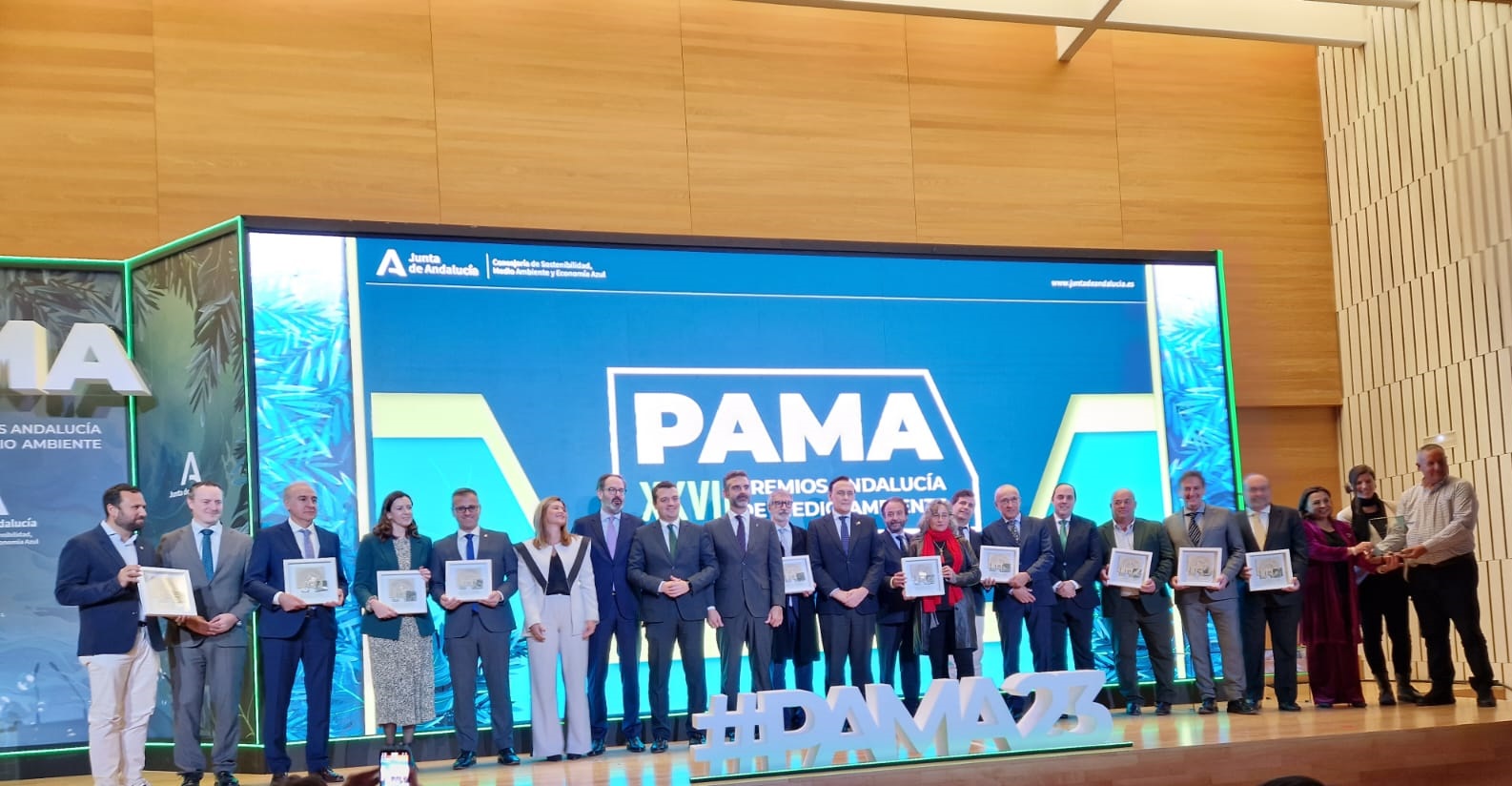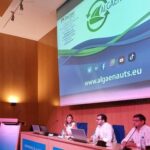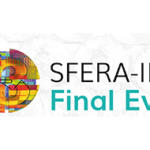
It has been awarded at the 27th edition of the Andalusia Environment Awards, granted by the Regional Ministry of Sustainability, Environment and Blue Economy.
Through the PAMA awards (Andalusia Environment Awards), the Andalusian Government values the efforts and commitment of Andalusian society in favour of the environment. In this way, it rewards companies, scientific society, administrations, associations and foundations, as well as individuals, for their decisive role in promoting the ‘Green Revolution’ and the fight against climate change.
El acto de entrega de la XXVII edición se ha celebrado hoy en el Palacio de Congresos y Exposiciones de Córdoba y ha estado presidido por el consejero de Sostenibilidad, Medio Ambiente y Economía Azul, Ramón Fernández-Pacheco Monterreal. El encargado de la entrega del premio ha sido Manuel Guzmán De la Roza, presidente de la Comisión de Sostenibilidad, Medio Ambiente y Economía Azul del Parlamento Andaluz, y el galardón lo ha recogido Lucas Díaz Gázquez, director de Aqualia en Andalucía, Extremadura y Canarias. La empresa ha sido premiada en la categoría de economía circular por el proyecto Life Ulises, que desarrolla en la depuradora El Bobar de Almería.
Lucas Díaz stressed that “this award encourages us to continue promoting initiatives that promote reuse and the circular economy applied to its maximum expression, converting wastewater into high-value products. At Aqualia we are committed to this approach in the face of the critical scenario of water scarcity that we are experiencing, and an example of this is the platform focused on the regeneration of wastewater for agricultural uses (Hub REUSA) that we have created in the city of Almeria”.
In this line, the company works to develop innovative technologies and responsible solutions in the integral water cycle that promote sustainability, both from the environmental and social point of view, as well as from the economic point of view. Thus, the company is committed to changing the paradigm of wastewater treatment by converting waste (wastewater) into value-added products, while significantly reducing energy consumption and promoting the circular economy.
The “LIFE Ulises” project.
The main objective of Life Ulises is to revolutionise conventional wastewater treatment processes through a set of novel technologies to produce valuable resources, such as biofuel for vehicles, agricultural biofertilisers and water suitable for reuse, from wastewater. The aim is to develop the concept of a zero-discharge wastewater treatment plant.
The project aims to reduce energy consumption and the carbon footprint associated with wastewater treatment by increasing the efficiency of a conventional wastewater treatment plant (WWTP) through the integration of different technologies in each of its main phases (water, gas and sludge).
All of these innovative technologies are low-cost and reduce the electricity consumption of the El Bobar treatment plant, minimising its environmental impact and carbon footprint, to the benefit of environmental protection and the fight against climate change.
In this way, Life Ulises has achieved, from wastewater:
– 100% renewable biofuel for vehicles. The project is producing more than 100 tonnes of renewable fuel per year, which could power a fleet of up to 90 cars. This fuel has been tested in a fleet of vehicles, which have driven more than 21,000 km, with an average consumption of 4.8 kg of biomethane per 100 km driven.
– Halving energy consumption in the purification process.
– Reclaimed water, using innovative solar technologies, which meets the strictest state sanitary limits for reuse
– Quality agricultural biofertiliser from WWTP sludge
– Recovery of nutrients from water (phosphorus and nitrogen) in the form of struvite, a product that can be reused as a highly effective agricultural fertiliser.
– Validate the efficacy of the last three products as biofertilisers through field tests on a 500 m2 crop of ornamental plants.
The LIFE Ulises project, now completed but still operational at the El Bobar WWTP, had a total budget of 1,902,784 €, with 55% European funding through the European Commission’s LIFE Environment programme. The consortium, led and coordinated by Aqualia, consisted of four Spanish partners: Aqualia, CIESOL – UAL, CETIM and Energylab.


